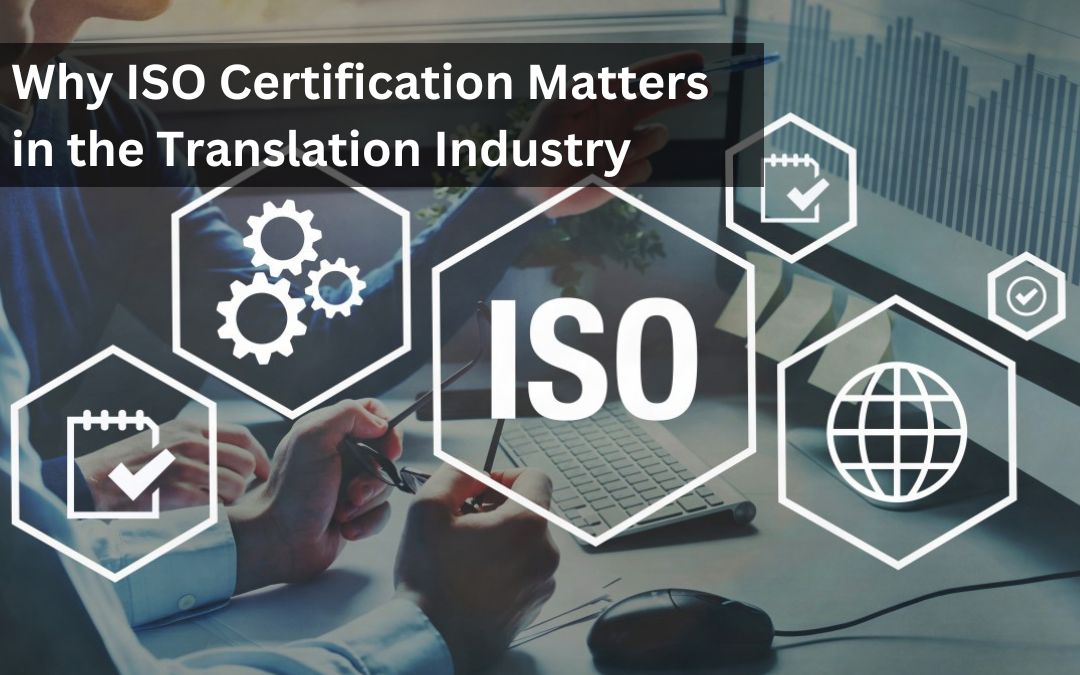In today’s globalized world, communication across borders is more crucial than ever. As businesses and organizations expand their reach, the demand for accurate and reliable translation services has surged. But how can clients be assured of the quality and consistency of these services? Enter ISO certification. In the translation industry, ISO certification serves as a benchmark for quality, reliability, and professionalism. Let’s delve deeper into why this certification is so pivotal.
1. Standardization of Processes: ISO (International Organization for Standardization) sets international standards for various industries, ensuring that businesses adhere to recognized best practices. For translation services, ISO certification means that the company follows a standardized process for translation, from client consultation to final delivery. This ensures consistency in the quality of translations, regardless of the project’s size or complexity.
2. Assurance of Quality: ISO certification is not merely a one-time achievement. Companies need to undergo regular audits to retain their certification. This continuous scrutiny ensures that the translation company consistently meets high standards. For clients, this is a reassurance that the company is committed to delivering top-notch services.
3. Enhanced Credibility: In a crowded market with numerous translation service providers, ISO certification helps companies stand out. It signals to potential clients that the company is serious about its commitment to quality and has the credentials to back it up. This can be a decisive factor for businesses when choosing a translation partner.
4. Risk Management: Mistakes in translation can be costly, both financially and in terms of brand reputation. ISO-certified translation companies have robust quality control measures in place. These measures, which include multiple rounds of proofreading and quality checks, significantly reduce the risk of errors.
5. Continuous Improvement: One of the core principles of ISO standards is the emphasis on continuous improvement. Companies are encouraged to regularly review and refine their processes. This commitment to ongoing enhancement ensures that clients receive services that are in line with the latest industry best practices.
6. Client-Centric Approach: ISO standards prioritize client satisfaction. Certified companies are required to gather feedback from clients and use this feedback to improve their services. This client-centric approach ensures that services are tailored to meet the specific needs and expectations of each client.
7. Global Recognition: ISO is a globally recognized organization. An ISO certification is, therefore, recognized and respected worldwide. For translation companies catering to international clients, this global recognition can be a significant advantage.
8. Data Security: Given the sensitive nature of many translation projects, data security is paramount. ISO standards include provisions for data protection and confidentiality. Clients can be assured that their sensitive information is in safe hands.
Conclusion :
In the translation industry, where the nuances of language, culture, and context are intricately intertwined, ensuring quality and accuracy is paramount. ISO certification provides a structured framework that translation companies can follow to ensure they meet these high standards consistently. For clients, partnering with an ISO-certified translation company means peace of mind, knowing that their projects will be handled with the utmost professionalism and expertise. In essence, ISO certification is more than just a badge of honor; it’s a testament to a company’s commitment to excellence in the world of translation.

